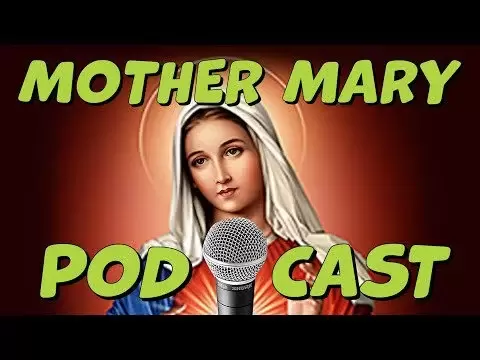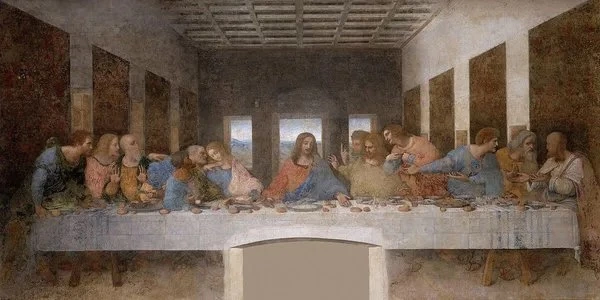|
Heavy Rain Forecast Hosea 6:1–3 predicts that the people of Israel would return to the Lord after a period of judgment. In that day, the people of Israel will say, “Come, and let us return to the Lord; For He has torn, but He will heal us; He has stricken, but He will bind us up. After two days He will revive us; On the third day He will raise us up, That we may live in His sight. Let us know, Let us pursue the knowledge of the Lord. His going forth is established as the morning; He will come to us like the rain, Like the latter and former rain to the earth” (NKJV). The “latter” and “former” rains are called the “winter rains” and “spring rains” in the NIV. The Lord had “torn” and “stricken” His people—i.e., Hosea predicts that God will discipline them (Hosea 6:1)-- because they were unfaithful to the covenant they had promised to keep (Exodus 24:3, 7). While the judgment would be certain and severe, God would demonstrate His grace and restore the people. He would heal them and bandage their wounds (Hosea 6:1). He would come to them like a refreshing and nourishing rain (Hosea 6:3). He would come like the latter and former rain, which would seem to refer to the early rain after planting and the later rain at harvest. Because of God’s promises, His people could know with certainty that God would keep His word—that He would indeed come to them as the latter and former rain to restore and refresh. While the context doesn’t specify when this restoration would take place, the passage seems to be pointing forward to the salvation that would be provided through the Messiah: God would revive them after two days and raise them up on the third day (Hosea 6:2). This prophecy seems to correlate directly with the events of Jesus’ death, as He died, was buried, and then rose again on the third day (see 1 Corinthians 15:1, 3–4). Paul mentions that Christ’s resurrection on the third day was “according to the Scriptures” (or writings). While there may have been a written gospel account by the time Paul wrote his first letter to the Corinthians (Matthew and Mark may have written by that time), Paul is probably referring to the Hebrew Scriptures and may have had Hosea 6:2 in mind. If Hosea’s prophecy of revival in the two days and raising on the third day (Hosea 6:2) is pointing forward to the death, burial, and resurrection of the Messiah, then the immediately following context that God would visit the people of Israel as the latter and former rain is likely also a picture of how refreshing and nourishing that event would be for the people under God’s judgment. In Hosea’s time, there was coming a somber judgment because of the people’s disloyalty to God and their transgressing of the covenant. But there was also a coming day of restoration for Judah (Hosea 6:11). God would come to the people as latter and former rain. It is important to note that God doesn’t ignore sin, and His holy standard is high—perfection, in fact (see Matthew 5:48). When God restores the people of Israel, He first deals with their sin problem. The Messiah would die as a sacrifice to pay for sins; thus, the nation would no longer be in bondage to the Law of Moses (the Old Covenant) or the consequences of breaking that covenant. God would forgive their sins as part of a New Covenant (Jeremiah 31:31). That blessing of forgiveness from sin through the sacrifice of the Messiah would be not just for one nation but for all the families of the earth (Genesis 12:3b). The Messiah would be like the latter and former rain for Israel and Judah (Hosea 6:3), and He would also be the water of life for all who would believe in Him (John 4:13–14). https://youtu.be/K-KyEspxhIU The fullness of the Gentiles includes the full number saved, walking in fullness of godly character and power, embracing the fullness of God’s narrative, resulting in the fullness of God’s purpose. ONLINE is the TOWN CENTER in JERUSALEM 21 that all of them may be one, Father, just as you are in me and I am in you. May they also be in us so that the world may believe that you have sent me. 23 I in them and you in me—so that they may be brought to complete unity. God has given various people the number 100 million intercessors over the years in prophetic encounters. Eric Watt, Jason Hubbard (IPC), and team have visited IHOPKC a number of times over recent years. They represent and communicate regularly with leaders that oversee 5,000+ prayer networks that collectively include 130 million believers (at first I found those numbers hard to believe). In their recent visit (Dec. 2022), they shared that the leaders of these 5,000+ prayer networks and the 130 million intercessors connected to them will stand together to pray for the same area of the earth 4 times in 2023 in a global mission initiative called 110cities.com. I am overwhelmed as I consider that this is the first time in history that over 100 million believers will pray for the same geographical area together on the same day (see Jn. 17:21-23). These 100 million prayed for China on January 22, 2023. They will pray for the Middle East on April 17, for Israel on May 28, and for India on October 31. These 100 million believers are deeply committed to Jesus and to The Great Commission, but many of them are not yet connected to the Lord’s biblical purpose for Israel. But for one day (May 28, 2023) 100 million will pray for Israel as they did for China on January 22. But for 21 days leading up to May 28, 1 million+ intercessors will fast and pray asking the "Holy Spirit to ambush” them by marking the hearts of these 100 million for His purposes for Israel. Summary: In this Isaiah 62 Fast, thousands of ministries will host daily prayer meetings with fasting— together we will mobilize over 1 million+ to pray for Israel AND for the Spirit to mark 100 million intercessors on May 28 to see God’s heart for Israel. IHOPKC is only one of many HUBs hosting this Isaiah 62 Fast. https://isaiah62fast.com/wp-content/uploads/2023/05/One-For-Israel-31-Days-Prayer-Guide-Erez-Soref-One-for-Israel-digital.pdf https://artincontext.org/famous-religious-paintings/
https://altusfineart.com/blogs/news/35-professional-lds-paintings-of-jesus-christ https://kuadros.com/en-us/blogs/news/las-pinturas-mas-famosas-de-jesus Paintings of Jesus Christ have occupieda prominent role in the art world for close on 1500 years Many commissions by the rich and wealthy all trying to prove their faith and muster influence with the church use Jesus Christ as the central role or theme. Practically all of the renaissance masters have several of their famous works of art depicting either the crucifixion or some other important biblical scene that contains Christ. These types of commissions in their day would have been extremely expensive and only the very rich and powerful could afford to undertake these kinds of works. Famous Paintings of Jesus 1. The Last Supper The most famous painting of Jesus Christ is without doubt the last supper. Painted by none other than Leonardo da Vinci it depicts the last supper of Jesus Christ and the twelve apostles. Painted in the late 15th century as a mural on the walls of the refectory of the Convent of Santa Maria delle Grazie in Milan. Fresco paintings are usually created by applying pigment onto intonaco, or a thin layer of wet lime plaster. Also Read: Easter Paintings This is normally the best technique to use as it allows the fresco to deal with the natural breathing or sweating that a wall does as moisture moves out to the surface. However, with the Last Supper da Vinci decide to use oil paint as it dries much slower and would allow him to work on the image in a much slower and more detailed manner. Leonardo knew that the natural moisture that permeates through most stone wall buildings would have to be sealed if he were to use oil paints, or it would ruin his work. He added a double coat of gesso, mastic, and pitch to fight this. The artwork has had to be restored many times in its long history. Very little of the initial top layer of oil painting is left as a consequence of both environmental and deliberate damage. 2. The Transfiguration The transfiguration is the final work by the great renaissance artist Raphael that was commissioned by Cardinal Giulio de Medici of the Medici banking dynasty. It was originally conceived as a alter piece that was to hang as the central altarpiece for the Narbonne Cathedral in France it now hangs in the Pinacoteca Vaticana in Vatican City. Following Raphael’s death the painting was never sent to France and the Cardinal instead hung on the high altar in the Blessed Amadeo’s church of San Pietro in Montorio, Rome in 1523. In 1797 however it was taken by French troops as part of Napoleon’s Italian campaign and subsequently hung in the Louvre. The painting can be viewed as reflecting a dichotomy at the simplest level: the redemptive force of Christ, as symbolized by the purity and symmetry of the top half of the painting; as opposed to the shortcomings of Man, as symbolized in the bottom half of the painting by the gloomy, chaotic scenes. It would be Raphael’s finally painting and he would work on it right up until his death in April 1520. The cleaning of the painting from 1972 to 1976 showed that only some of the lower left figures were completed by assistants, while the majority of the painting was by Raphael himself. 3. The Last Judgment The Last Judgment is a huge fresco painted by Michelangelo that adorns the entire alter wall in the Vatican City of the Sistine Chapel. Between 1536 and 1541, it took Michelangelo over four years to complete because of not only its scale, but also the difficulty and number of figures. 25 years after the completion of the Sistine Chapel Ceiling, he began working on it and by the time it was finished, he was considerably old at 67 at that point. All the males were initially painted as nudes, but the inclusion of painted draperies later covered them up. The reception was originally mixed between praise and criticism, with the nudes being a big topic of debate as well as how muscular a number of the figures were. Also Read: Famous Fresco Paintings It is a reflection of Christ’s Second Coming and the ultimate and everlasting judgment of all mankind by God. As judged by Christ, who is surrounded by famous saints, the dead rise and descend to their destiny. There are more than 300 figures in total. It was originally commissioned by Pope Clement VII, but it was completed under Pope Paul III, whose stronger reforming views undoubtedly influenced the final treatment. From the beginning, the reception of the painting was mixed, with much praise but also criticism on both religious and artistic grounds. One point of controversy was both the amount of nudity and the muscular design of the body, and another was the overall composition. 4. Christ Carrying the Cross by El Greco El Greco created numerous paintings of Christ bearing the cross during his long career in Spain in roughly 1580. Unlike some of his earlier works this piece is not a narrative one, Christ is alone in the image and no really background or setting is discernible. The image portrays Christ as he bears the cross to his death in a moment of personal contemplation, thereby performing the greatest sacrifice for humanity. The eyes of Christ are raised up to the heavens in the painting as he begins his walk toward his crucifixion. His gentle hands curl around the cross as the backdrop is filled by a stormy night. Also Read: Nativity Paintings El Greco as his name suggests was Greek and acquired the name while living in Italy during the Renaissance era, he worked under the El Greco lived in Venice , Italy, and studied under Titian, one of Italy’s most famous Renaissance painters. 5. Christ Crucified by Diego Valazquez Christ Crucified was painted in 1632 by Diego Velazquez. Diego Velazquez was the official painter to the then king of Spain Philip IV and although he completed on a few religious painting this is actually one of his most famous works of art. The painting depicts the crucifixion of Jesus in a very understated way when compared to some of his other works from the same period. Also Read: Resurrection Paintings Velazquez would make several nude studies when he spent time in Rome which he would use in some of his later works like Apollo at the Forge of Vulcan and Joseph’s Tunic. With Christ Crucified however the image is much more minimalist and has a very paired down and respectful feel. There is no supporting scene or any other people to focus on just a very raw ad bare full front on near life size nude painting. Although there were preparatory siting doe with live models the actually painting is thought to have been completed back in Spain after he returned from Italy in roughly 1631. It currently resides in the Museo del Prado in Madrid. In the Bible transformation means “change or renewal from a life that no longer conforms to the ways of the world to one that pleases God” (Romans 12:2). This is accomplished by the renewing of our minds, an inward spiritual transformation that will manifest itself in outward actions. The Bible presents the transformed life in Christ as demonstrated through our “bearing fruit in every good work [and] growing in the knowledge of God” (Colossians 1:10). Transformation involves those who were once far from God being “drawn near” to Him through the blood of Christ (Ephesians 2:13). Moreover, evidence of transformation within us is seen in the way we increasingly reflect the likeness and glory of Christ (2 Corinthians 3:18). For as the apostle Paul said, “You, however, are controlled not by the sinful nature but by the Spirit, if the Spirit of God lives in you. And if anyone does not have the Spirit of Christ, he does not belong to Christ” (Romans 8:9). To be considered as children of God, we must be led by the Spirit of God. And it is through the power of God’s Spirit that Christ lives within us. The transformed life mirrors the attitude of the apostle Paul: “I have been crucified with Christ and I no longer live, but Christ lives in me. The life I live in the body, I live by faith in the Son of God, who loved me and gave himself for me” (Galatians 2:20). This power of transformation comes from one source. Paul said, “For the message of the cross [the gospel] is foolishness to those who are perishing, but to us who are being saved it is the power of God” (1 Corinthians 1:18). In speaking of Jesus, the apostle Peter, empowered by the Holy Spirit, boldly declared this truth: “Salvation is found in no one else, for there is no other name under heaven given to men by which we must be saved” (Acts 4:12). Transformed lives begin with the gospel message of Christ, for in it is the power of God. It is the gospel that brings us salvation: “I am not ashamed of the gospel, because it is the power of God for the salvation of everyone who believes: first for the Jew, then for the Gentile. For in the gospel a righteousness from God is revealed, a righteousness that is by faith from first to last, just as it is written: ‘The righteous will live by faith’” (Romans 1:16-17). Through the gospel message of Christ, we learn “to put off your old self, which belongs to your former manner of life and is corrupt through deceitful desires, and to be renewed in the spirit of your minds, and to put on the new self, created after the likeness of God in true righteousness and holiness” (Ephesians 4:22-24). “For if you live according to the sinful nature, you will die; but if by the Spirit you put to death the misdeeds of the body, you will live, because those who are led by the Spirit of God are sons of God” (Romans 8:13-14). Just before he died, the apostle Peter provided us specific instructions on how we are to live out our transformed lives: “His divine power has given us everything we need for life and godliness .. . for if you do these things, you will never fall, and you will receive a rich welcome into the eternal kingdom of our Lord and Savior Jesus Christ” (2 Peter 1:3-11). This also fulfills the statement of
Jesus, “This gospel of the kingdom will be preached in all the world as a witness to all the nations, and then the end will come” The Beginning of the End: The Four Horsemen of the Apocalypse In Revelation 6:1–8 Jesus shows the apostle John the beginning of the end by describing the planet’s coming horrors through descriptive pictures of four successive horses and their riders. The White Horse The White Horse symbolizes the coming Antichrist, masquerading as the Messiah, who will:
the Antichrist will show his true colors. The Red Horse The Red Horse takes peace from the earth and carries a great sword, symbolizing the massive outbreak of war—and very possibly nuclear war. One-third of all trees, green grass, and human life will be destroyed instantaneously.
John is describing twenty-first century phenomena in first century terms! The Black Horse and the Pale Horse The Black Horse and the Pale Horse symbolize famine and plagues. This certainly fits with the scenario our scientists give us of the results of a nuclear war. Proclaiming the gospel Through the tribulation will be a destructive and dark time, the light of God will still shine throughout the world. Many people will believe in Christ after the rapture of the church but they will have to avoid taking the mark of the beast-- which means many will die for their faith. The gospel will be preached throughout the earth by an angel “flying in the midst of Heaven having the everlasting gospel to preach to every nation, tribe, tongue, and people” (Revelation 14:6). This also fulfills the statement of Jesus, “This gospel of the kingdom will be preached in all the world as a witness to all the nations, and then the end will come” (Matthew 24:14). Jewish revival During the Great Tribulation, God will bring about a tremendous revival among the Jewish people. Representing the twelve tribes of Israel, 144,000 Jews will be under divine protection with the mandate to proclaim the gospel throughout the world (Revelation 7:4–8). Two prophets In the last days, God will raise up two prophets who will have a ministry of miracles, including calling down fire from Heaven on those who attempt to hurt them! They will also have power over the waters, turning them to blood. But, as the whole world watches, they will be assassinated and left on the street as dead. Suddenly, they will be resurrected and ascend to Heaven. Yet, even though the world will witness their resurrection, there will be those who remain hardened in their unbelief! “And this is the condemnation, that the light has come into the world, and men loved darkness rather than light, because their deeds were evil” (John 3:19). Keys to the Kingdom The Great Tribulation Death to Life Take away the stone, Jesus said. “Lord, by now he stinks,” said Martha, the sister of the dead man . “It has already been four days.” 40 Jesus replied, "Did I not tell you that if you believed, you would see the glory of God?” So they took away the stone. Then Jesus lifted His eyes upward and said, “Father, I thank You that You have heard Me.… He came to Jesus at night and said, “Rabbi, we know that You are a teacher who has come from God. For no one could perform the signs You are doing if God were not with him.” jesus replied, “Truly, truly, I tell you, no one can see the kingdom of God unless he is born again.” 'How can a man be born when he is old?” Nicodemus asked. Can he enter his mother’s womb a second time to be born?”… Remember, Peter walked on water Twice. These things I have spoken to you, so that in Me you may have peace. In the world you have tribulation, but take courage; I have overcome the world.” In his VISION in Revelation 19:7–10, John saw and heard the heavenly multitudes praising God because the wedding feast of the Lamb-- literally, the “marriage supper”—was about to begin. The concept of the marriage supper is better understood in light of the wedding customs in the time of Christ. These wedding customs had three major parts. First, a marriage contract was signed by the parents of the bride and the bridegroom, and the parents of the bridegroom or the bridegroom himself would pay a dowry to the bride or her parents. This began what was called the betrothal period—what we would today call the engagement. This period was the one Joseph and Mary were in when she was found to be with child (Matthew 1:18; Luke 2:5). The second step in the process usually occurred much later, when the bridegroom, accompanied by his male friends, went to the house of the bride at midnight, creating a torchlight parade through the streets. The bride would know in advance this was going to take place, and so she would be ready with her maidens, and they would all join the parade and end up at the bridegroom’s home. This custom is the basis of the parable of the ten virgins in Matthew 25:1–13. The third phase was the marriage supper itself, which might go on for days, as illustrated by the wedding at Cana in John 2:1–2. What John’s vision in Revelation pictures is the wedding feast of the Lamb (Jesus Christ) and His bride (the Church) in its third phase. The implication is that the first two phases have already taken place. The first phase was completed on earth when each individual believer placed his or her faith in Christ as Savior. The dowry paid by the bridegroom’s parent (God the Father) would be the blood of Christ shed on the Bride’s behalf. The Church on earth today, then, is “betrothed” to Christ, and, like the wise virgins in the parable, all believers should be watching and waiting for the appearance of the Bridegroom (the rapture). The second phase symbolizes the rapture of the Church, when Christ comes to claim His bride and take her to the Father’s house. The marriage supper then follows as the third and final step. It is our view that the marriage supper of the Lamb takes place in heaven between the rapture and the second coming (during the tribulation on earth). Attending the wedding feast will be not only the Church as the Bride of Christ, but others as well. The “others” include the Old Testament saints—they will not have been resurrected yet, but their souls/spirits will be in heaven with us. As the angel told John to write, “Blessed are those who are invited to the marriage supper of the Lamb” (Revelation 19:9). The marriage supper of the Lamb is a glorious celebration of all who are in Christ! The End is Anew and better Adam Anew Beginning The Alpha and Omega First and Last The Beginning and The End For many who are first, shall be Last and many who are last, shall be First Spiritual Seed of David The Five 5-1-23 May 1, 2023 Pentecost Two Holy Hearts Three in ONE Physical Israel... Your Next! |
AuthorWrite something about yourself. No need to be fancy, just an overview. Archives
May 2023
Categories |
|
|
|
|
|
|
|
Paragraph. Clicca qui per modificare.
|
Paragraph. Clicca qui per modificare.
|
Paragraph. Clicca qui per modificare.
|
Paragraph. Clicca qui per modificare.
|
Paragraph. Clicca qui per modificare.
|
|













 RSS Feed
RSS Feed




















































